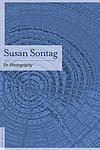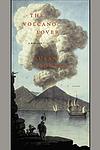Susan Sontag
Susan Sontag was an influential American writer, philosopher, and critic, known for her essays on modern culture. She was born on January 16, 1933, and passed away on December 28, 2004. Sontag's works include 'On Photography,' 'Against Interpretation,' and 'Illness as Metaphor.' She was also a human rights activist, and her work has had a significant impact on literary criticism and theory.
Books
This list of books are ONLY the books that have been ranked on the lists that are aggregated on this site. This is not a comprehensive list of all books by this author.
-
1. Against Interpretation
This book is a collection of essays that challenge the traditional methods of interpretation and criticism of art and culture. The author argues that in our attempt to interpret and find deeper meaning, we often overlook the sensory experience of the work itself. The book encourages readers to experience art in its raw form, focusing on the form, color, and sounds, rather than trying to decipher a hidden meaning. It is a call for a new, more direct approach to consuming art and culture.
-
2. Aids And Its Metaphors
In this thought-provoking work, the author extends her previous analysis of the social and psychological implications of disease to the AIDS epidemic. She explores how metaphors and myths surrounding the illness contribute to stigmatizing those affected, often reinforcing existing prejudices and fears. The book delves into the language used to describe AIDS and its impact on public perception, challenging the punitive and militaristic metaphors that frame the disease as a punishment or an enemy to be fought. Through her examination, the author argues for a more empathetic and less judgmental approach to understanding and addressing the AIDS crisis, advocating for compassion and support over moralistic condemnation.
-
3. On Photography
The book is a seminal critique and exploration of the art, philosophy, and consequences of photography. It delves into the medium's history, its role in shaping society's perception of reality, and the ethical implications of capturing images. The author argues that photography, as a ubiquitous form of documentation, has altered the way people interact with the world, creating a collective memory bank but also leading to a detachment and passivity in the face of the photographed subjects. Through a series of essays, the work examines the power dynamics inherent in photography, the commodification of images, and the medium's impact on art and culture, ultimately questioning the nature of seeing and the truth in representation.
-
4. I, etcetera
"I, etcetera" is a collection of eight short stories that delve into the complexities of human nature and relationships. The stories are diverse in their themes, exploring topics such as war, love, identity, and illness. The narratives are deeply introspective, often employing experimental forms of storytelling that challenge traditional narrative structures. The author's sharp intellect and incisive observations about the human condition are evident throughout the collection.
-
5. Illness As Metaphor
The book is a critical examination of the ways in which society uses metaphors to depict and understand illness, particularly focusing on tuberculosis and cancer. The author argues that the metaphors and myths surrounding certain diseases can often be harmful, adding a layer of stigma and moral judgment to the patient's experience. By analyzing historical and cultural attitudes, the book challenges the victim-blaming narratives and encourages a more empathetic and fact-based approach to understanding illness, advocating for the separation of the patient's identity from their disease.
-
6. The Volcano Lover
"The Volcano Lover" is a historical novel set in the 18th century, revolving around the love triangle between Sir William Hamilton, his wife Emma Hamilton, and the naval hero Admiral Horatio Nelson. The narrative delves into the complexities of their relationships against the backdrop of the tumultuous political and social landscape of the time, including the eruption of Mount Vesuvius, the Neapolitan court, and the Napoleonic Wars. The book weaves a rich tapestry of passion, power, and the arts, exploring themes of obsession, the nature of heroism, and the impact of historical events on personal lives.
-
7. Regarding the Pain of Others
The book is a deep exploration of how we perceive and engage with images of suffering and atrocity, particularly through photography. It critically examines the role of visual media in shaping our understanding of war, violence, and tragedy, questioning the ethics and impact of spectatorship. The author delves into the history of war photography, the intentions behind capturing such images, and the desensitization that can occur from repeated exposure. The text challenges readers to consider their own responses to these images and the complex interplay between empathy, conscience, and the consumption of others' pain.
-
8. In America
"In America" is a historical novel that explores the journey of a Polish actress, Maryna Zalewska, who, along with her husband and a group of friends, immigrates to the United States in 1876 to establish a utopian commune in California. The book delves into themes of identity, ambition, and the American dream as Maryna's initial plans fail and she reinvents herself as a successful American actress. The narrative is a blend of historical fact and fiction, offering a unique perspective on the immigrant experience in 19th century America.







